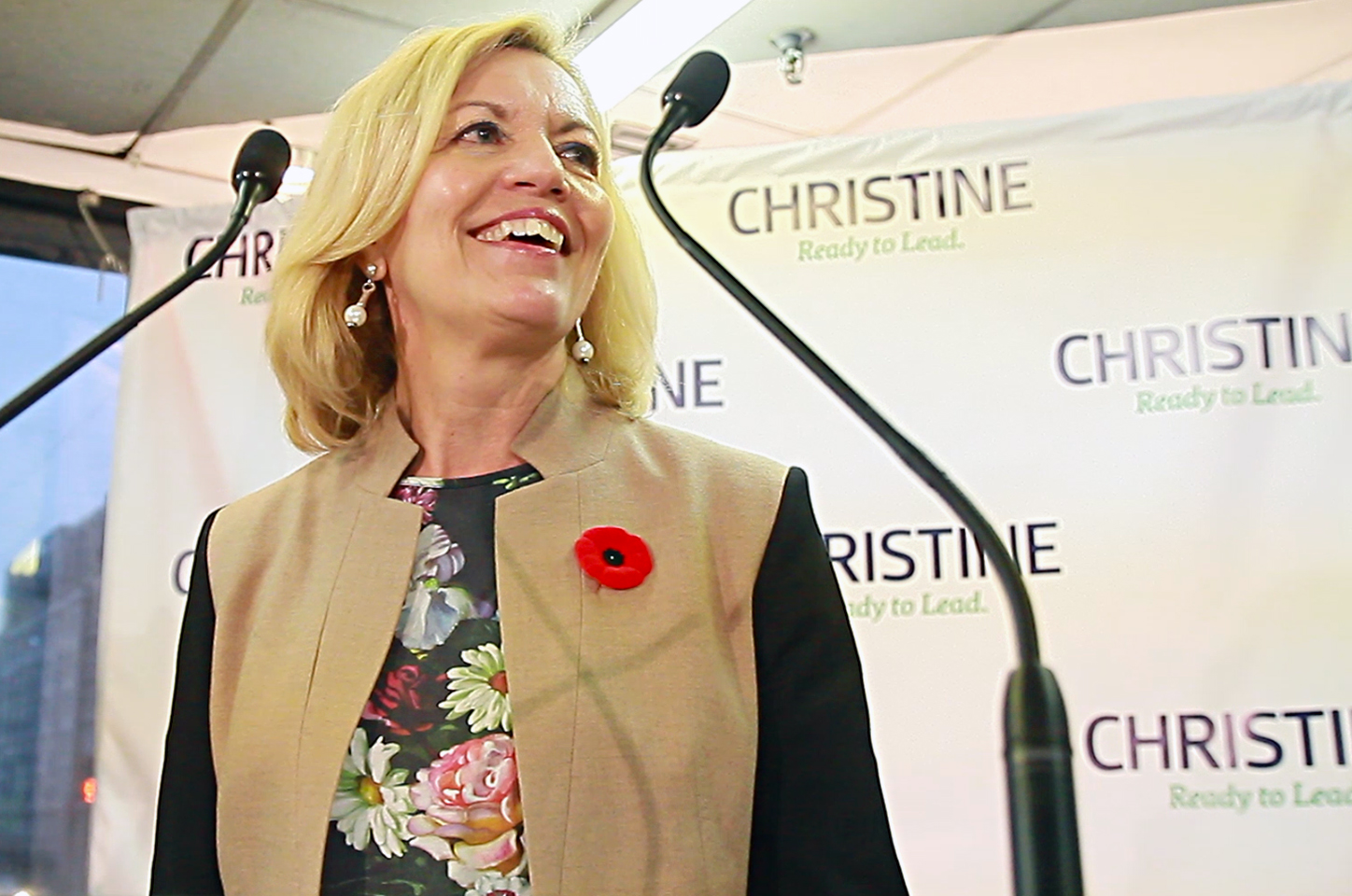It’s time to give thanks for the Ontario Progressive Conservative Party. Provincial politics certainly wouldn’t be as entertaining without them.
For the last 15 years, they’ve been the Washington Generals of Canadian politics — routinely blowing huge leads and easy competitions against the surprisingly showy Ontario Liberals.
From funding for religious schools to pledging to lay off 100,000 of your neighbours, the PCs have had a wonderful track record of walking into traps of their own making. In more recent years, the PC machine managed to botch a nomination contest for its own party president, who lost to a 19-year-old upstart (A bit of dramatic irony given the party president’s reported penchant for teenagers).
Down at the municipal level, there was the on-again-off-again never-quite-disavowal of Rob Ford’s scandal-plagued mayoralty, and his brother Doug’s on-again-off-again never-quite-committal ambitions for municipal or provincial office.
Of course, the most recent twists in the PC saga are more tragic than comic, as its leader and president were both swept aside amid allegations of sexual assault and harassment, mere months before an election.
The surviving party executive has thrown the party into a leadership competition, in which not a single sitting member of the PC caucus is willing to run. That new void threatens to tear the party apart as it races to redefine itself in the 17 weeks before Ontarians cast their ballots.
The “Progressive” Conservatives have always been a difficult marriage of libertarians, so-cons, the urban wealthy and the small-town workers. LGBT issues divide the party like few other issues divide Canada’s other parties. But every time the party lurches toward progress on LGBT acceptance, they remain at pains to present the big blue tent as wide enough to accommodate the social conservatives who hate LGBT people.
In a way, the Ontario PCs are in the spot Canada’s Liberal parties were in up through the last decade — afraid of appearing retrograde to the urban voters they need, but beholden to an older generation of voters and legislators who, well, are bigots. It took the calamity of the 2011 federal election to wipe out the Liberals’ dinosaurs for the party under Trudeau to reinvent itself as united on core issues related to LGBT (and reproductive) rights.
The PCs may be at a similar inflection point now. While the leadership contest has yet to shape up, we have a few declared or presumed candidates.
Erstwhile mayoral candidate Doug Ford has decided to once again darken the PCs’ doorsteps with his ambitions for the premiership. That the party hasn’t immediately ruled him ineligible for his alleged drug dealing in the 1980s, or for being an accessory to the most disastrous mayoralty of Ontario’s capital in the province’s history, speaks volumes of how seriously the party executive takes their situation.
Nevertheless, he has a strong organization and a loyal fan base of at least 300,000 people who voted for him in the last Toronto election — larger than the most generous count for the PC party membership.
While so-cons haven’t explicitly embraced him (yet) – and why would they endorse Rob Ford’s chief enabler? – if his provincial ambitions mirror what came out of his tenure at Toronto City Hall, his leadership would likely bring the party’s recent opening to the LGBT community to an end. If he wins, we should probably not expect the PCs to be marching with their leader in Toronto Pride, at the very least — and why would we want them to?
Caroline Mulroney appears to be mounting a campaign for the leadership, though god only knows why. Her list of qualifications for the job begins and ends with “her dad was prime minister once, 25 years ago.” Nevermind that the Mulroney name is synonymous with corruption, scandal and years of constitutional deadlock that almost destroyed the country. We know virtually nothing of what Caroline Mulroney stands for. She’s made no notable public statements and she has no legislative history at all.
While that could make her a comforting blank canvas for all corners of the party to project its wishes on, it would effectively leave her hamstrung like her predecessor Patrick Brown, unable to make any moves on LGBT issues lest she break the illusion.
Finally, there’s Christine Elliott. Though she’s run for and lost the leadership twice on a, um, conservatively progressive platform, this could be the time the stars align in her favour. She’s an accomplished legislator with a proven history in public service and with the party. Moreover, she has a real record of supporting LGBT issues in office.
In 2012, she was key to securing her party’s support for Ontario’s trans-rights bill, which she co-sponsored. Ontario’s bill sparked a legislative movement that five years later got trans-rights bills passed in every federal and provincial legislature in Canada — most with support from other conservative politicians. She also supported Ontario’s bill to ban conversion therapy.
Although she voted against the bill that would mandate gay-straight alliances in all schools, she did so because she was part of a group within the PC caucus that was pushing an alternative bill that actually had some stronger penalties and requirements.
Should the party choose Christine Elliott as its flag-bearer, the PCs could finally move beyond its weak reliance on identity politics and refocus itself on ideas that would benefit all Ontarians. Whether the party can be saved from itself is another matter.


 Why you can trust Xtra
Why you can trust Xtra


